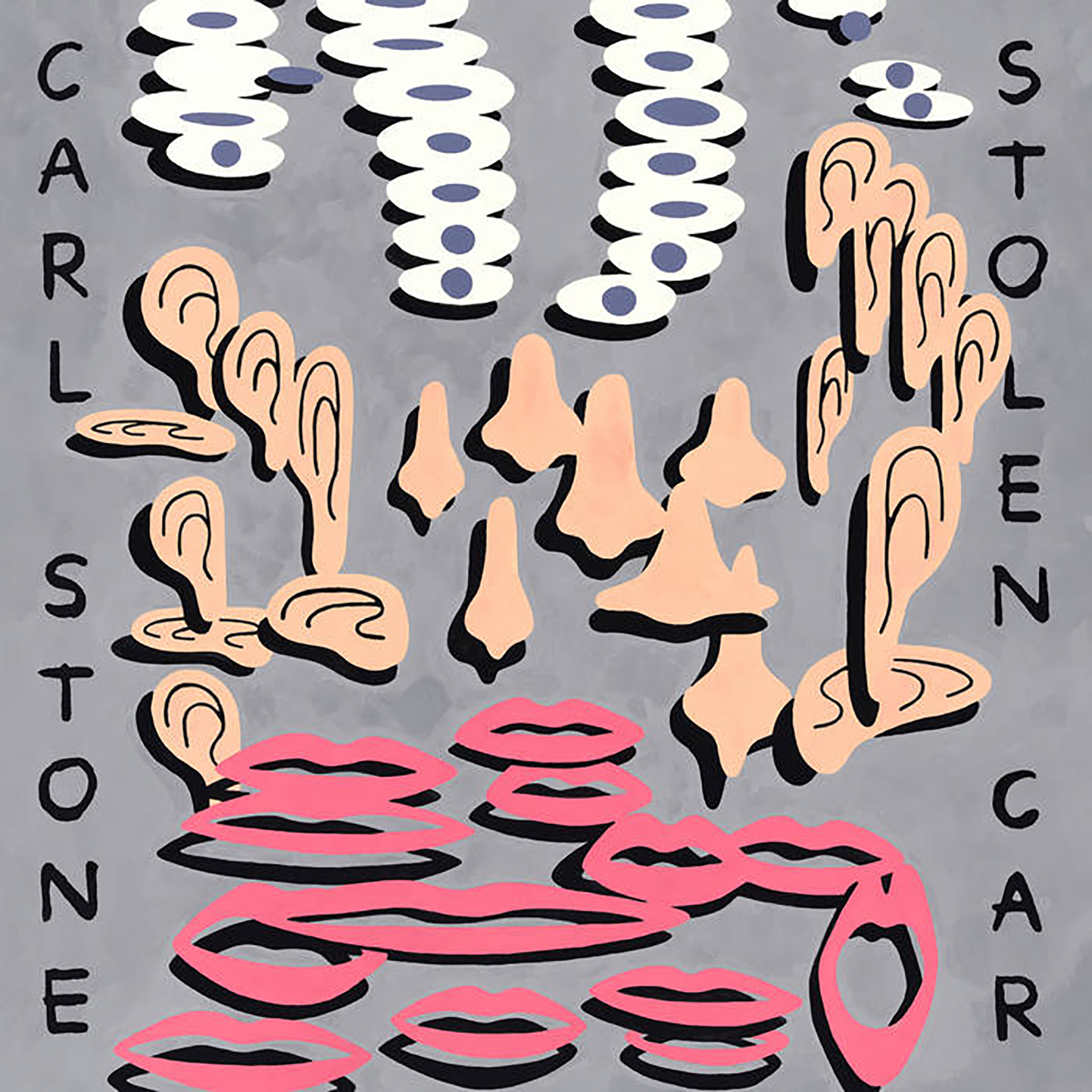 In theory, this album was released last September (which feels like a hundred years ago), but the LP only recently made its way into stores and distros, which is an increasingly familiar story these days. Fortunately, that long delay inspired me to revisit the album with fresh ears and I discovered that I actually liked it quite a lot more than I remembered. That statement deserves an asterisk though, as my earlier issue with Stolen Car was merely that I had already played the amazing Au Jus/The Jugged Hare and Ganci & Figli singles to death and those are probably the four best songs here. That unsurprisingly made the actual album a bit of an anticlimax, as my expectations were absolutely sky high and only those singles could meet them. Had I not already been extremely familiar with those four pieces, however, I suspect Stolen Car's release would have inspired me to run out into the street to grab random strangers by the shoulders and demand to know why they were just going about their mundane lives when they could be listening to this delirious, rapturous swirl of kaleidoscopic pop brilliance instead. On the bright side, not doing that may have spared me a night in jail, so I guess it all ultimately worked out. Admittedly, I still think this is a bit of an uneven album, but it is at least half of a masterpiece too, as I am hard-pressed to think of many people who can touch Carl Stone at the height of his powers (which he is frequently at here).
In theory, this album was released last September (which feels like a hundred years ago), but the LP only recently made its way into stores and distros, which is an increasingly familiar story these days. Fortunately, that long delay inspired me to revisit the album with fresh ears and I discovered that I actually liked it quite a lot more than I remembered. That statement deserves an asterisk though, as my earlier issue with Stolen Car was merely that I had already played the amazing Au Jus/The Jugged Hare and Ganci & Figli singles to death and those are probably the four best songs here. That unsurprisingly made the actual album a bit of an anticlimax, as my expectations were absolutely sky high and only those singles could meet them. Had I not already been extremely familiar with those four pieces, however, I suspect Stolen Car's release would have inspired me to run out into the street to grab random strangers by the shoulders and demand to know why they were just going about their mundane lives when they could be listening to this delirious, rapturous swirl of kaleidoscopic pop brilliance instead. On the bright side, not doing that may have spared me a night in jail, so I guess it all ultimately worked out. Admittedly, I still think this is a bit of an uneven album, but it is at least half of a masterpiece too, as I am hard-pressed to think of many people who can touch Carl Stone at the height of his powers (which he is frequently at here).
Carl Stone has certainly had a lengthy and fascinating career, but his recent work feels like it is on a different plane altogether and that plane is quite an endearingly fun and gleefully deranged place to be. In fact, it is a challenge to wrap my mind around the fact that the same man whose "jazz rock" band auditioned for Frank Zappa's label in the late '60s is also responsible for the opening "Pasjoli," which sounds like an Egyptian disco album being pulled apart by a black hole in the middle of an '80s hip hop block party. While it is not the best song on the album, "Pasjoli" does quite a fine job of laying down all of the album's themes in impressively vivid and dizzying fashion: from the first note to the last, Stolen Car is a manic, stammering, go-for-broke culmination of Stone's unique approach to cultural appropriation (absolutely everything is fair game and disorienting juxtapositions are both welcome and rampant). Aside from the four songs previously released as singles (the swirling, delirious pop cut-up "Figli" being the best), my favorite piece is "Bojuk," which feels like a soulful contemporary dance hit chopped into an unintelligible fragment language coupled with an anthemic hook that feels like it should have its own line dance. In general, the poppiest songs on Stolen Car are the best, but Stone's eccentric vision of "pop" feels like the entire history of The Eurovision Song Contest condensed into a single wild hallucination. Or perhaps like someone crammed Dexy's Midnight Runners, a classical quartet, a dance diva, a turntablist, and some yodelers into an elevator and told them they couldn’t leave until they recorded a hit together. I also enjoyed the divergent "Huanchaco," which resembles a tight fusion band remixed into jackhammering psychedelic lunacy by a maniac. Admittedly, there are also a handful of songs that do not quite hit the mark, but they are decisively outweighed by the great ones and Stolen Car as a whole sounds like a wildly pixelated and accelerated version of Jon Hassell's Fourth World aesthetic beamed back from twenty years in the future.
Samples can be found here.
Read More

